Emile Parisien - Chien Guêpe (2015) [Hi-Res]
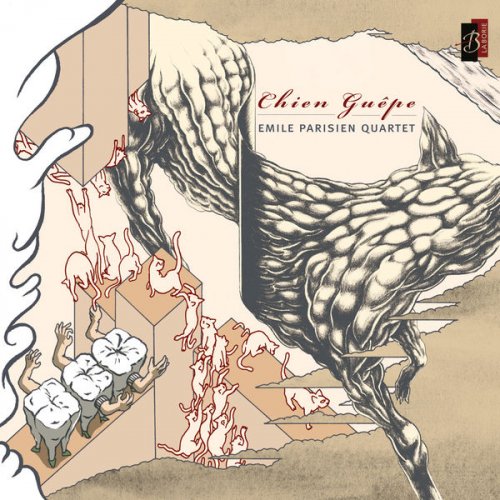
Artist: Emile Parisien
Title: Chien Guêpe
Year Of Release: 2015
Label: Laborie Jazz
Genre: Jazz, Contemporary Jazz
Quality: FLAC (tracks) 24/44,1
Total Time: 00:39:44
Total Size: 424 MB
WebSite: Album Preview
Tracklist:Title: Chien Guêpe
Year Of Release: 2015
Label: Laborie Jazz
Genre: Jazz, Contemporary Jazz
Quality: FLAC (tracks) 24/44,1
Total Time: 00:39:44
Total Size: 424 MB
WebSite: Album Preview
1. Dieu m'a brossé les dents
2. Chocolat-citron
3. Bonjour crépi
4. Chauve et courtois
The Dadaist provocation of the cover, announcing dog but showing cat, speaks volumes about the quartet’s musical aesthetics: if humour is one of their ways of standing back, it is not the only one.
The group assume head-on the tragical and operatic accents of the themes that pass through Dieu m’a brossé les dents (God has brushed my teeth): dirges and dying voices. But from the first notes of the introduction, where the zither duplicates and bypasses the remote ringing of the piano, the drama takes on a layer of fantasy. Sitting on the edge of the mirror, we are surrounded by roaming ghosts and floating shadows. By freeing the themes from their gravity, this aesthetic choice defuses a pathos that is close at regular intervals. Paradoxically, it is when they use an extensive palette of processes, similar to cards endlessly shuffled and dealt, that the quartet reach a refined expression. The thousand shades of tones and colours contrast all the more that the piece’s structure is simple. Dieu m’a brossé les dents is a journey, an epic, with its rich movements, its breaks, its seismic rumblings, its telluric eruptions. In its climaxes, the piece rediscovers the origin of free jazz: a cry of pain against the injustice of the world. But the combustion of energy that makes the piece work carries its own exhaustion. In the ostinato that follows the catastrophe, the bells ring again and the deity of the title, ridiculous of course, can but helplessly contemplate that devastated scene. Barely good enough to make the enamel shine… So the quartet remorselessly turn their back on it and hop to a completely different atmosphere.
Chocolat citron (Lemon chocolate) opens up on the thunderous bars of some rhythmical fight. But the appearance of the piano and soprano result in reducing a little the violence of the initial beat. The sound scenery is set up: a harsh and unstructured one, and this flexible groove, as elastic as a piece of gum, delineates an organic movement reminding of the arabesques of the heated lava that stretches out in the translucent wax of the background lamps we used in the pop era. Movement and fascination: as simple as a mobile. On the surface only. In fact, the musical motifs are sharp as a razor blade. The fusion of the processes renders inoperative any distinction between what could be a matter of theme, of improvisation, of chorus, of riff, or even of rhythmic cell. Studio work imposes by nature to determine a shape, in such a way that only the narrative can be audible. Film music was mentioned about the quartet’s work, but the analogy should be extended to the imaginary of video games, of which Chocolat citron irresistibly reminds. An arcade course with its randomly multiplied obstacles, its right angle turns of scenery, its simultaneous events and its levels crossed in sudden changes of world. The first part of the piece stops swiftly. The trap closes in. The player has been caught and the boxing frenzy gives place to the dull heaviness set up by the bow of the double bass. Slowing-down, suffocation: the oxygen begins to miss, and the stridencies of a piano prepared to be ill-treated, all the more anxiety-provoking as they are irregular, provide a metallic hue to this scenery that looks like a wrecked submarine. The musical colours are finely elaborated in order to stage this no man’s time, this undecidable dusk between the abstract side of the music and its physical side, where suspense is born of a deceptive energy. Danger is lying in wait like a sniper in ambush. A few sounds, a ray of light are then enough to restart the piece. The player has found the secret passage and comes up to the surface again to fight his last lyrical battle. For the last riff will be fatal to him, and the piece will be bluntly suspended rather than completed. Game over?
The group assume head-on the tragical and operatic accents of the themes that pass through Dieu m’a brossé les dents (God has brushed my teeth): dirges and dying voices. But from the first notes of the introduction, where the zither duplicates and bypasses the remote ringing of the piano, the drama takes on a layer of fantasy. Sitting on the edge of the mirror, we are surrounded by roaming ghosts and floating shadows. By freeing the themes from their gravity, this aesthetic choice defuses a pathos that is close at regular intervals. Paradoxically, it is when they use an extensive palette of processes, similar to cards endlessly shuffled and dealt, that the quartet reach a refined expression. The thousand shades of tones and colours contrast all the more that the piece’s structure is simple. Dieu m’a brossé les dents is a journey, an epic, with its rich movements, its breaks, its seismic rumblings, its telluric eruptions. In its climaxes, the piece rediscovers the origin of free jazz: a cry of pain against the injustice of the world. But the combustion of energy that makes the piece work carries its own exhaustion. In the ostinato that follows the catastrophe, the bells ring again and the deity of the title, ridiculous of course, can but helplessly contemplate that devastated scene. Barely good enough to make the enamel shine… So the quartet remorselessly turn their back on it and hop to a completely different atmosphere.
Chocolat citron (Lemon chocolate) opens up on the thunderous bars of some rhythmical fight. But the appearance of the piano and soprano result in reducing a little the violence of the initial beat. The sound scenery is set up: a harsh and unstructured one, and this flexible groove, as elastic as a piece of gum, delineates an organic movement reminding of the arabesques of the heated lava that stretches out in the translucent wax of the background lamps we used in the pop era. Movement and fascination: as simple as a mobile. On the surface only. In fact, the musical motifs are sharp as a razor blade. The fusion of the processes renders inoperative any distinction between what could be a matter of theme, of improvisation, of chorus, of riff, or even of rhythmic cell. Studio work imposes by nature to determine a shape, in such a way that only the narrative can be audible. Film music was mentioned about the quartet’s work, but the analogy should be extended to the imaginary of video games, of which Chocolat citron irresistibly reminds. An arcade course with its randomly multiplied obstacles, its right angle turns of scenery, its simultaneous events and its levels crossed in sudden changes of world. The first part of the piece stops swiftly. The trap closes in. The player has been caught and the boxing frenzy gives place to the dull heaviness set up by the bow of the double bass. Slowing-down, suffocation: the oxygen begins to miss, and the stridencies of a piano prepared to be ill-treated, all the more anxiety-provoking as they are irregular, provide a metallic hue to this scenery that looks like a wrecked submarine. The musical colours are finely elaborated in order to stage this no man’s time, this undecidable dusk between the abstract side of the music and its physical side, where suspense is born of a deceptive energy. Danger is lying in wait like a sniper in ambush. A few sounds, a ray of light are then enough to restart the piece. The player has found the secret passage and comes up to the surface again to fight his last lyrical battle. For the last riff will be fatal to him, and the piece will be bluntly suspended rather than completed. Game over?
![Wes Montgomery - Full House (Remastered 2026 / Live At Tsubo / 1962) (1962) [Hi-Res] Wes Montgomery - Full House (Remastered 2026 / Live At Tsubo / 1962) (1962) [Hi-Res]](https://www.dibpic.com/uploads/posts/2026-02/1772124946_cover.jpg)

![Julian Lage - Scenes From Above (Japanese Edition Bonus Track) (2026) [SHM-CD] Julian Lage - Scenes From Above (Japanese Edition Bonus Track) (2026) [SHM-CD]](https://www.dibpic.com/uploads/posts/2026-02/1772029332_front.jpg)
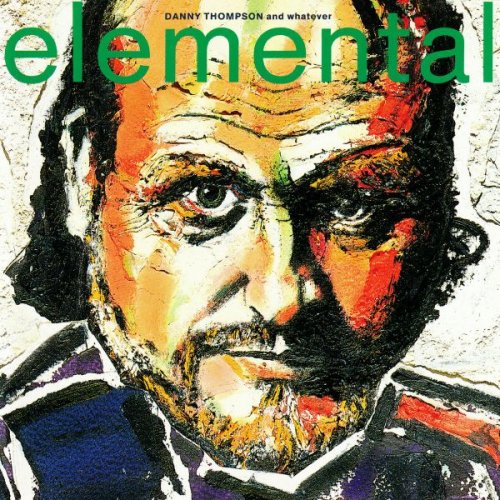
![Fabiano do Nascimento - Vila (2026) [Hi-Res] Fabiano do Nascimento - Vila (2026) [Hi-Res]](https://img.israbox.com/img/2026-02/26/o4t38f6qf24pvc3bqzanbhsz3.jpg)
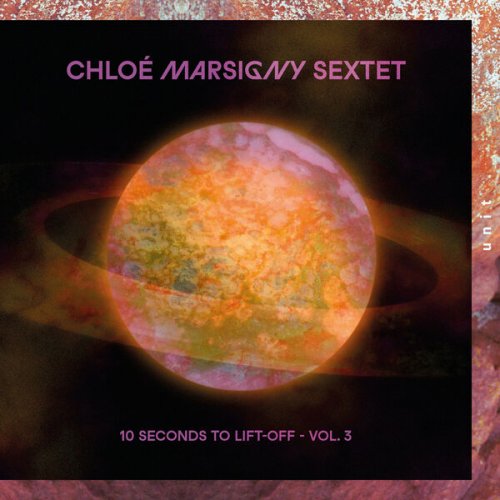
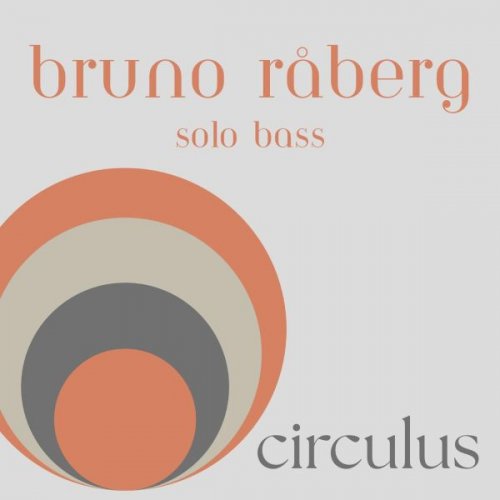
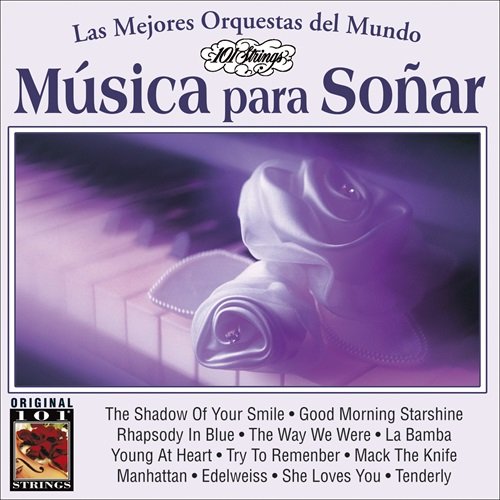
![Bill Frisell - In My Dreams (2026) [Hi-Res] Bill Frisell - In My Dreams (2026) [Hi-Res]](https://www.dibpic.com/uploads/posts/2026-02/1772013732_tpex4dl25956z_600.jpg)